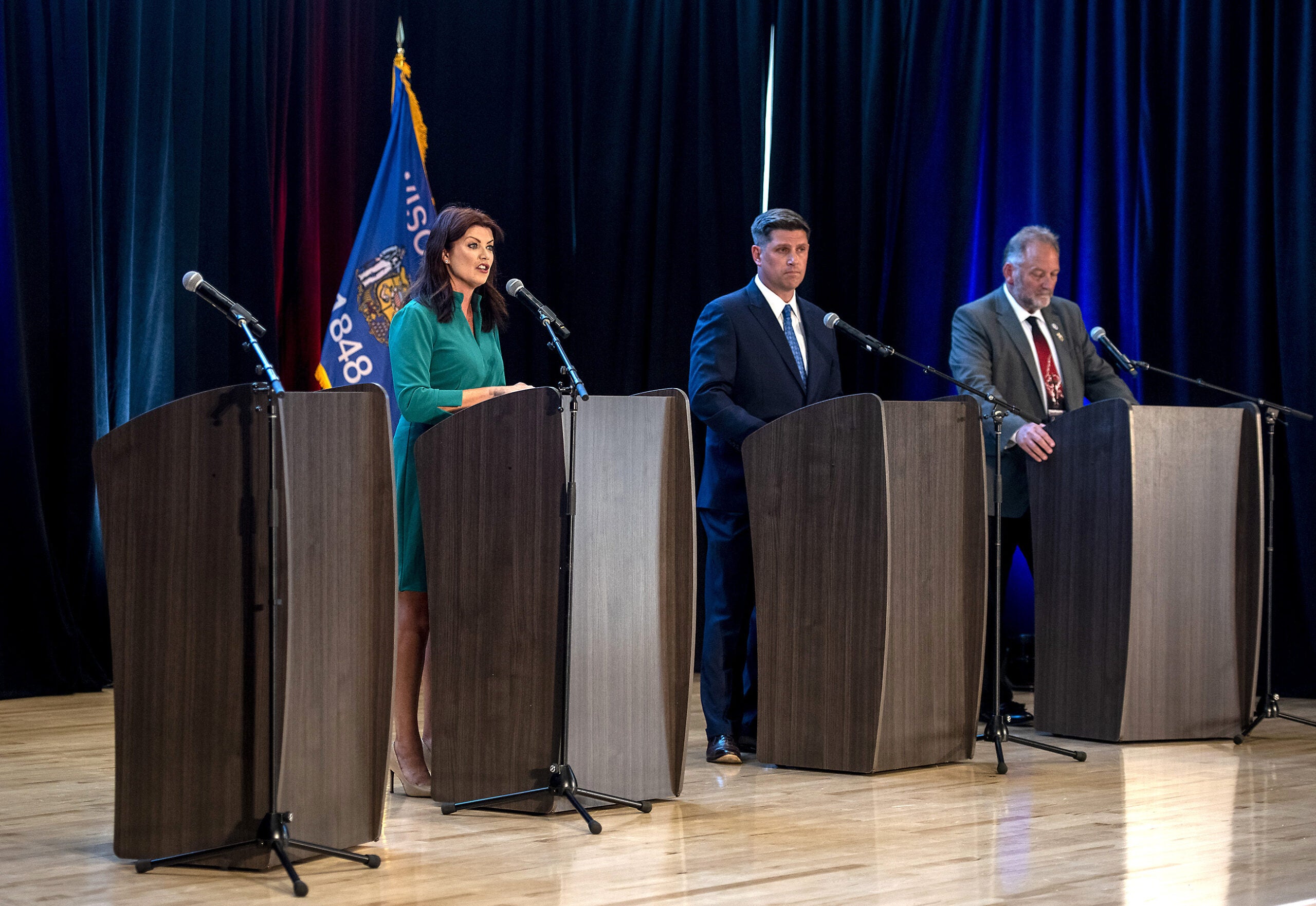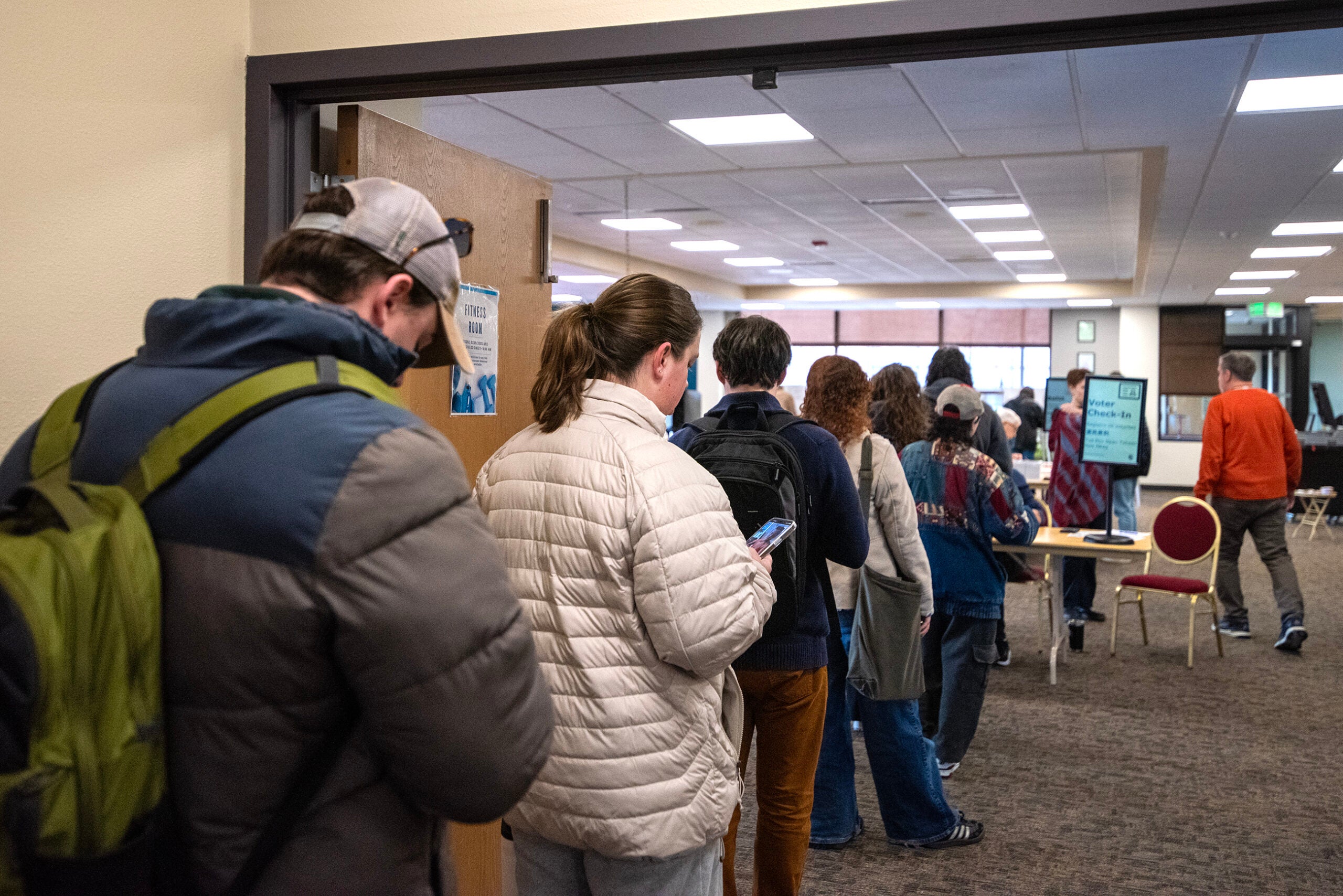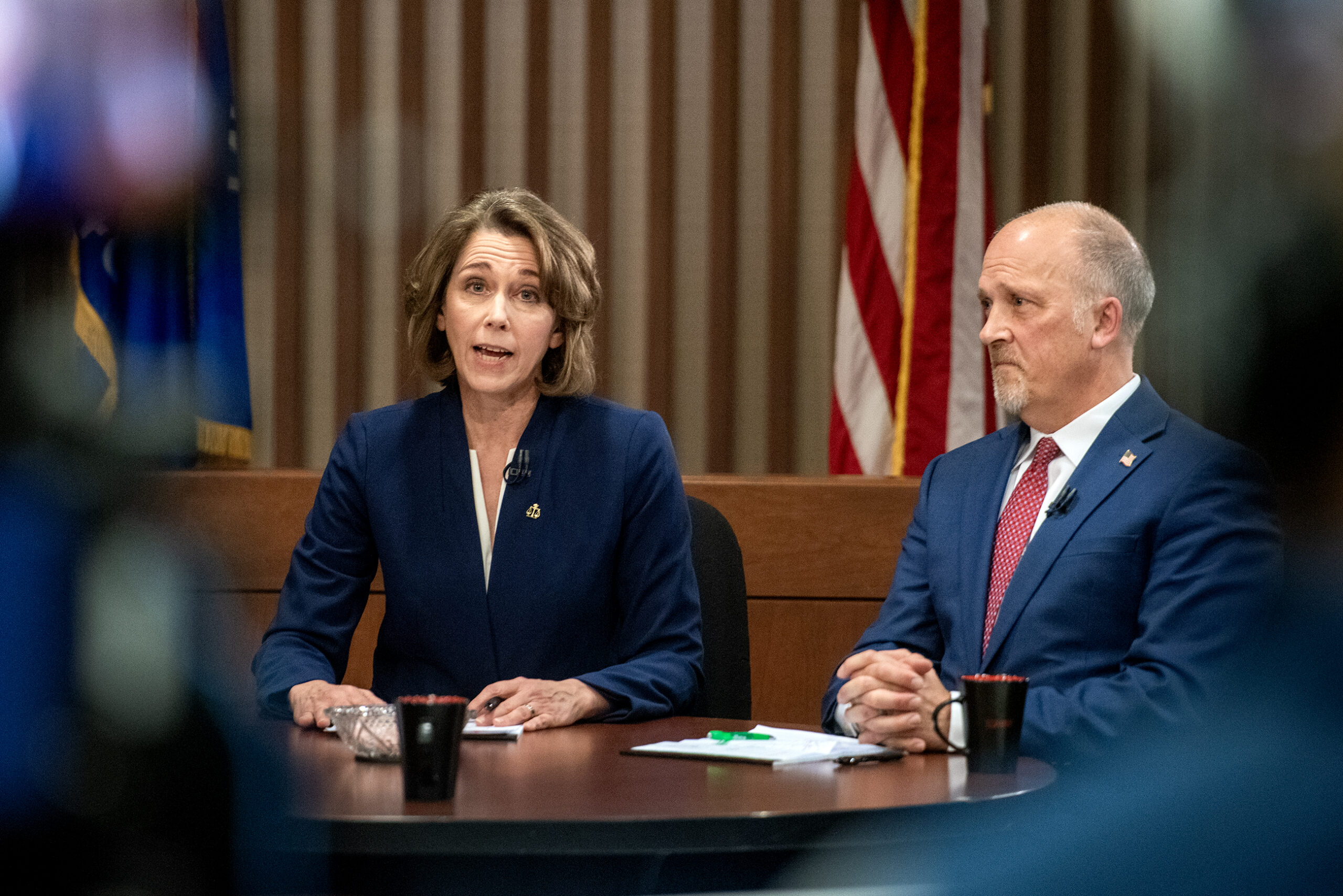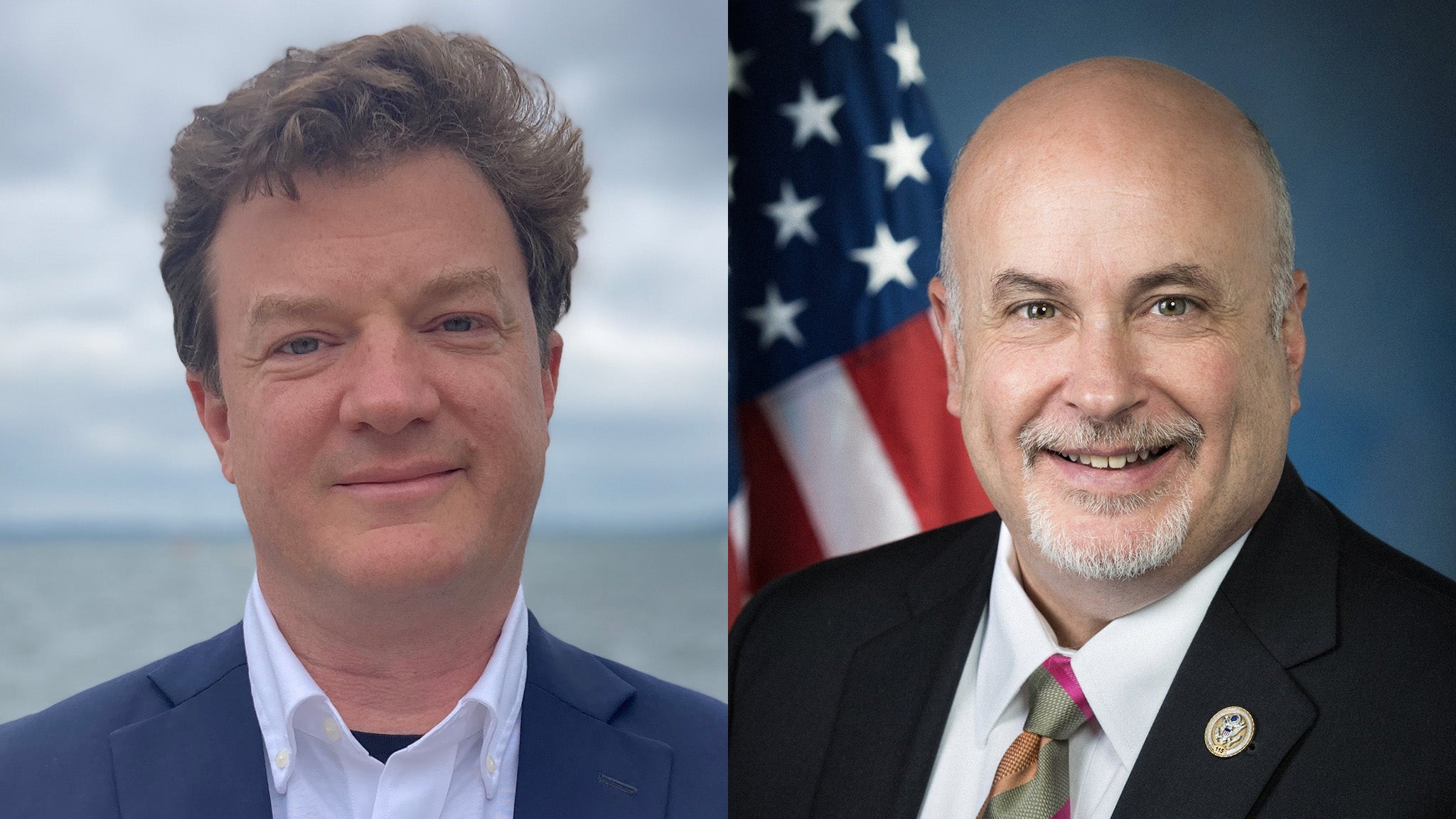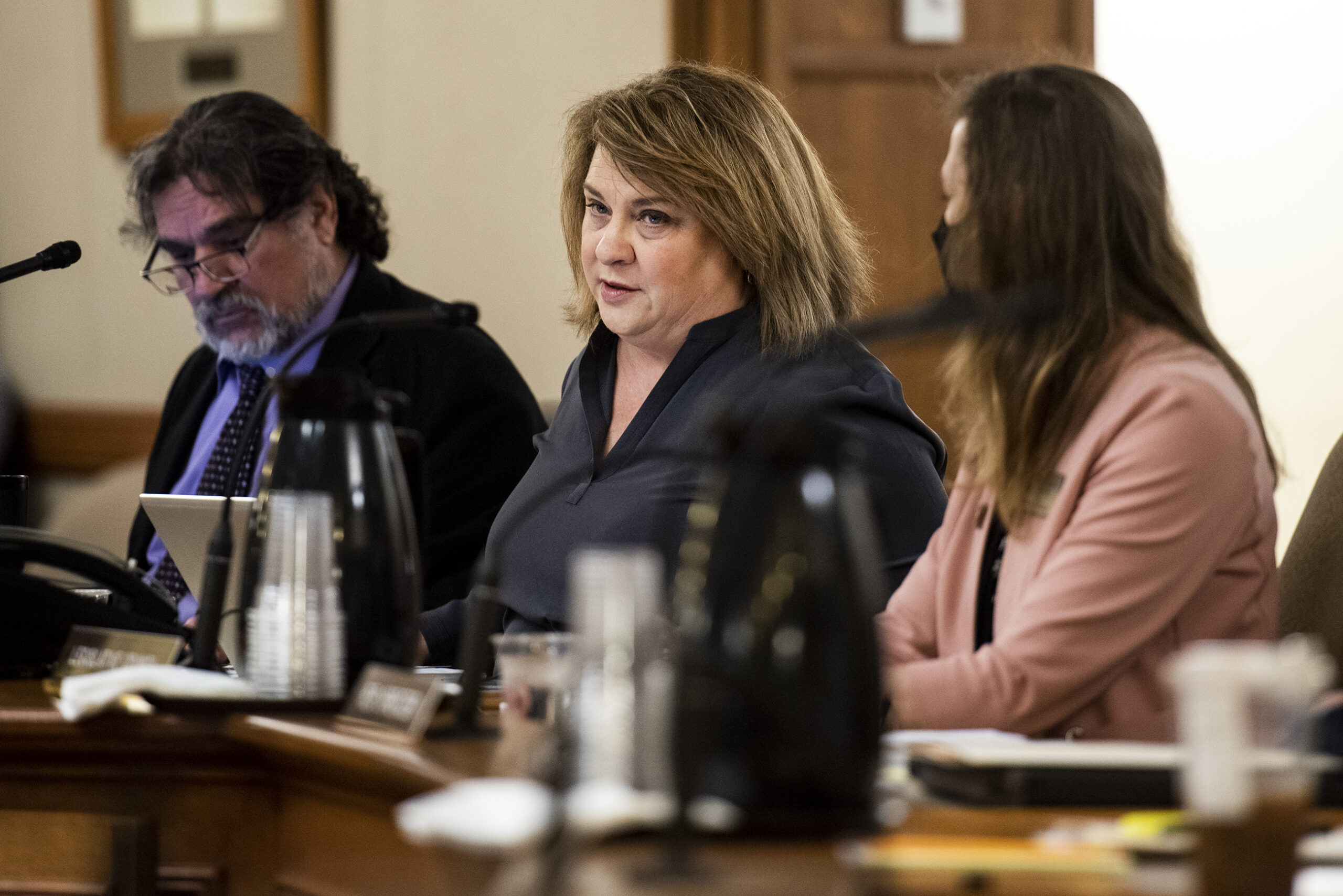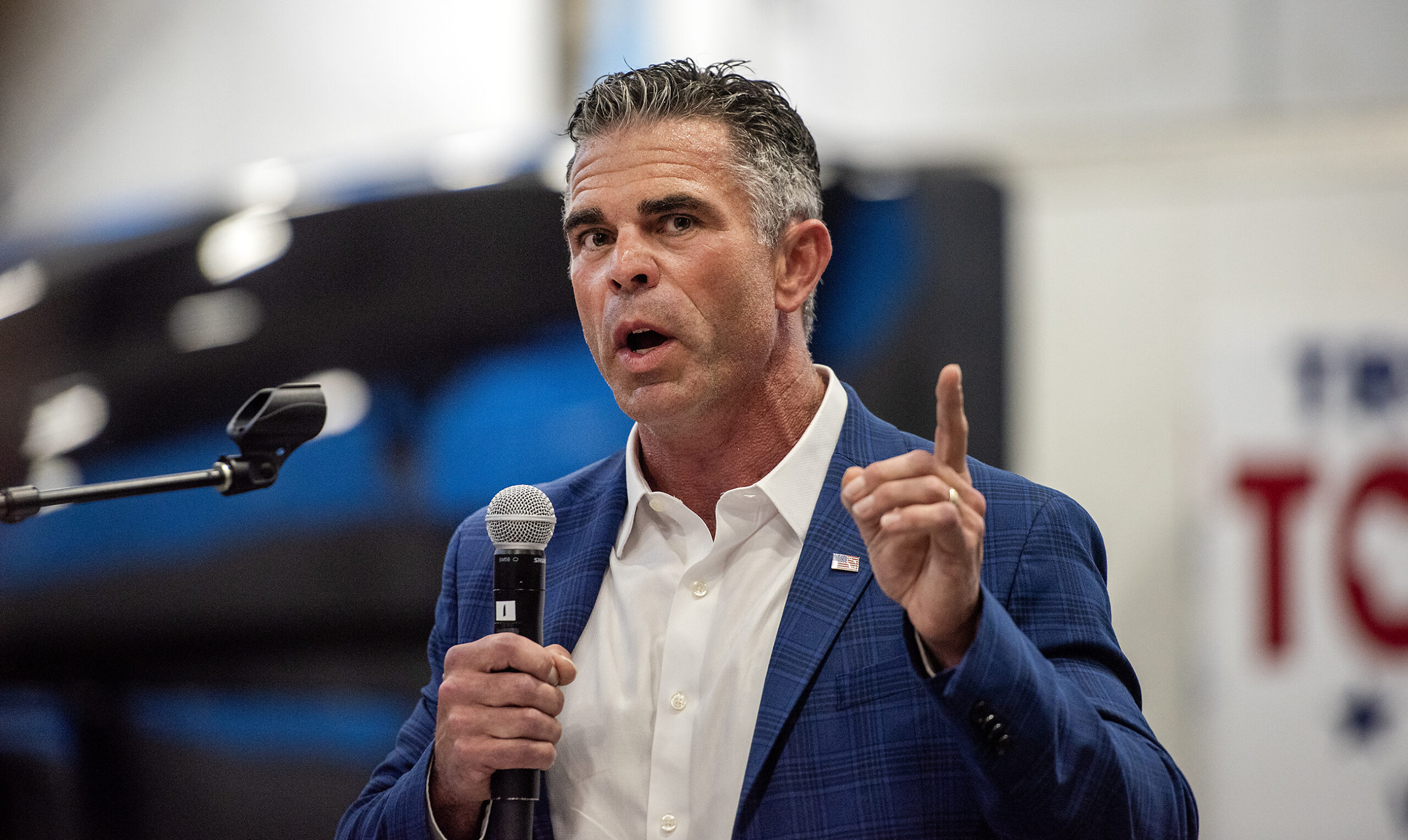Republican candidates for governor Rebecca Kleefisch, Kevin Nicholson and Tim Ramthun all took swipes at fellow GOP candidate Tim Michels Monday night during a debate that Michels did not attend.
The decisions by Michels to miss the debate — and by his opponents to attack him — may hint at a new phase in the GOP primary, where Michels has shot up in the polls following an endorsement by President Donald Trump and a barrage of TV advertising.
In his absence, Kleefisch, Nicholson and Ramthun promoted positions that would put them sharply at odds with Democratic Gov. Tony Evers in a general election. For example, all three said they’d oppose the legalization of medical marijuana and all three said they’d support enforcement of Wisconsin’s pre-Civil War era abortion ban.
Stay informed on the latest news
Sign up for WPR’s email newsletter.
The debate was moderated by Joe Giganti, a conservative talk radio host for WTAQ-AM in Green Bay, and hosted by Providence Academy, a Christian school in Green Bay. Giganti gave the candidates multiple opportunities to attack Michels, which they seized.
“I’ll say quite bluntly: If you ain’t here tonight in front of a moderator who wants a Republican to win in November, then you’re not prepared to go through what you have to go through to actually win in the general election,” said Nicholson.
“I’m as frustrated as you all are,” said Kleefisch, the state’s former lieutenant governor. “We showed up because we care about the voters of Green Bay. We care about the people of Wisconsin, and we want to have a debate on the issues. But unfortunately, Tim Michels does not.”
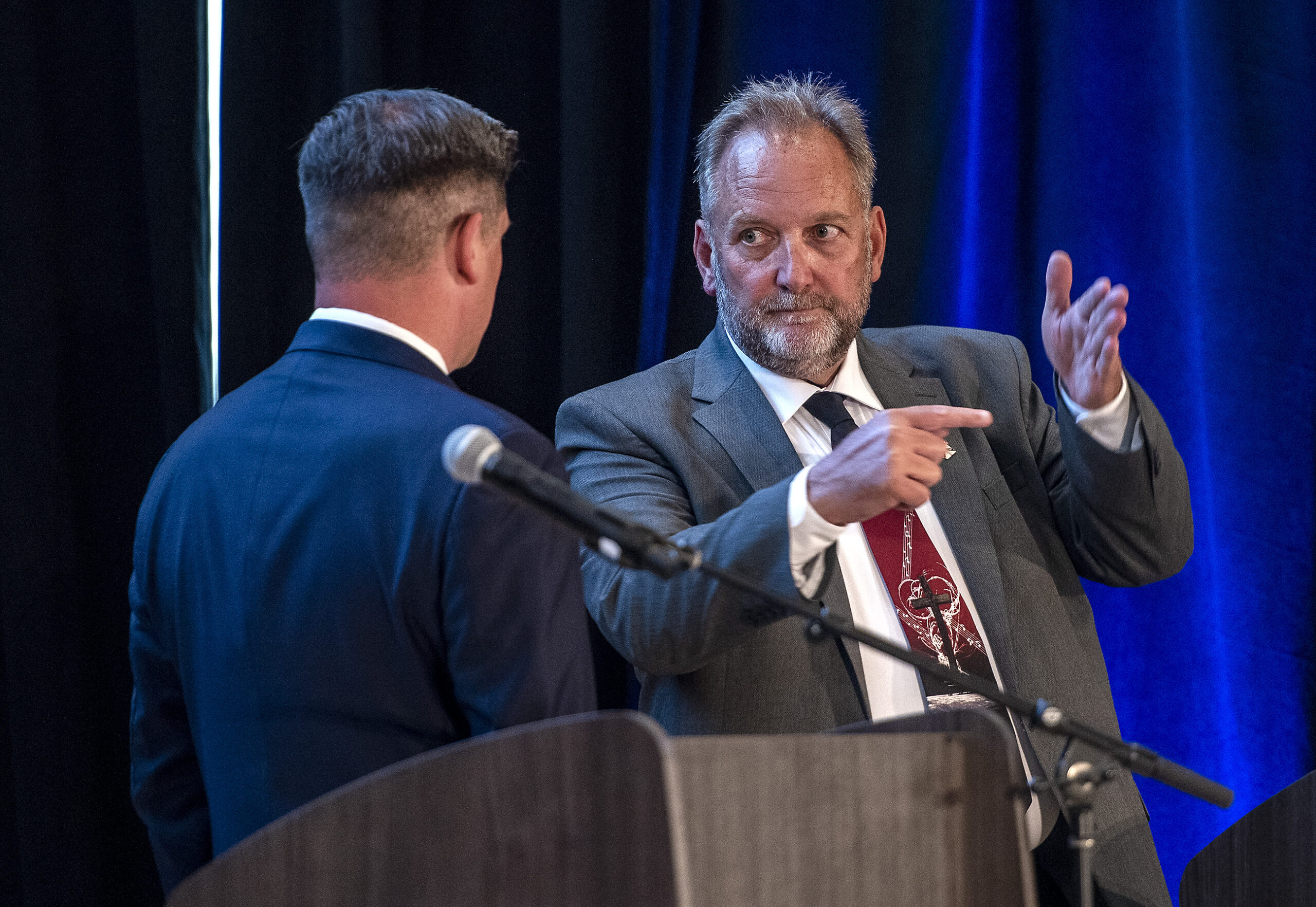
Ramthun also took shots at Michels for his absence. “I think he has a lot of questions to answer. And in my humble opinion, perhaps maybe that’s why he’s not here tonight,” said Ramthun, the state representative from Campbellsport. “If I’m not going to be the governor, and he is hypothetically, that right now doesn’t bode well.”
Michels’ campaign did not respond to an email Monday asking for comment on why he did not attend the debate. In a tweet Monday night, he posted pictures of a campaign rally.
“Some candidates think the path to victory is to tear other Republicans apart and divide the party. I’m a builder,” Michels said.
Enforcing the 1849 abortion ban
During Monday’s debate, Kleefisch, Nicholson and Ramthun all praised the U.S. Supreme Court’s Friday ruling striking down Roe v. Wade, which reinstated abortion bans in states across the country, including Wisconsin.
Wisconsin’s abortion ban, which was first passed in 1849, makes nearly all abortions illegal unless deemed medically necessary to save the patient’s life. It also makes providing an abortion a felony punishable by up to six years in prison and a fine of up to $10,000.
The law sat dormant for 50 years after the Supreme Court’s decision in Roe. Evers said over the weekend that he would grant clemency to anyone charged with violating the ban.
In Monday’s debate, Kleefisch, Nicholson and Ramthun took a decidedly different approach.
“I will lead with both empathy and compassion and keep the 1849 law on the books,” Kleefisch said.
“I’m glad that’s on the books,” said Ramthun. “It’s going to maintain that abortion can’t be performed in our state. That’s it. I’m just elated. It’s good.”
Democratic Attorney General Josh Kaul has said he won’t enforce the abortion ban and Milwaukee County District Attorney John Chisolm has said he won’t either. Dane County District Attorney Ishmael Ozanne said he would avoid enforcing “archaic laws.”
Asked whether they would use their power as governor to remove from office any elected district attorneys who don’t enforce the ban, all three Republican candidates said yes.
“Those district attorneys or prosecutors that refuse to follow the law? Yes, as governor, I will fire them,” Nicholson said.
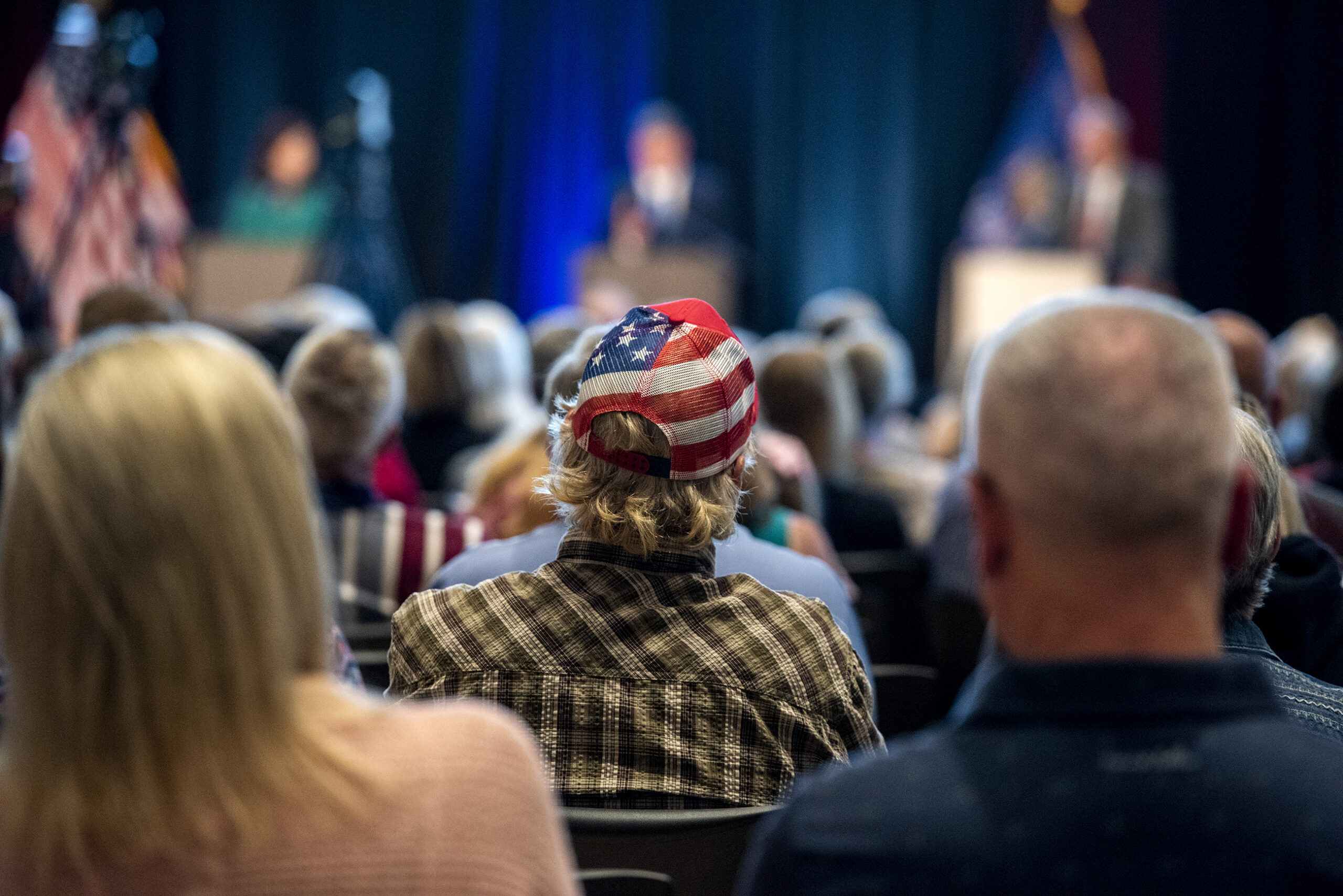
Opposing medical marijuana
All three GOP candidates also said they oppose the legalization of marijuana for either recreational or medicinal use.
Giganti asked candidates if they would sign into law “any bill that would legalize recreational drug use and or so-called medical use that allows for marijuana consumption in ways typically associated with illegal drug abuse.”
Kleefisch used the question to promote her support from police organizations.
“My answer is no because I listen to cops,” Kleefisch said. “We know that marijuana is a gateway drug, because this is what law enforcement says.”
Ramthun said he was convinced any kind of marijuana legalization would create new problems.
“For me, it’s going to make matters worse, and I don’t want to see it in our state,” Ramthun said.
Nicholson said the legalization of marijuana in any form would lead to a push for looser drug laws.
“Once marijuana in any way, shape, or form is introduced as a legal substance, whether medical or anything else, a lobby is established in the state,” Nicholson said. “And that lobby starts spending big, big money fast, starts to buy up legislators and governors and ultimately opens the door for more drug abuse going forward.”
Evers has proposed legalizing marijuana for both recreational and medicinal purposes, only to have those efforts blocked by GOP legislators.
A 2019 Marquette University Law School poll found 83 percent of voters favored legalization of medical marijuana.
More recently, a February Marquette poll found 61 percent of Wisconsin voters favored legalizing recreational marijuana, including majorities of both Republicans and Democrats.
The 2020 election
Giganti also asked all three candidates whether they believed the 2020 election was “stolen,” requiring candidates to begin their answers with either “yes” or “no.”
Ramthun, who has made a name for himself by calling on the Legislature to rescind President Joe Biden’s victory in Wisconsin, was the only candidate on stage to answer in the affirmative.
“Yes,” Ramthun said. “Categorically, without exception without question.”
Kleefisch tried to avoid a yes-or-no answer.
“I’ve answered this question before on your show,” Kleefisch told Giganti. “And I’ve said that the election was rigged from the very beginning.”
Nicholson also avoided a direct answer.
“Illegal conduct occurred, but I’ll stop right there,” Nicholson said.
Wisconsin’s 2020 presidential election has been among the most scrutinized in history, with a partial recount, multiple state and federal court cases and a nonpartisan audit affirming Biden’s victory over former Republican president Donald Trump.
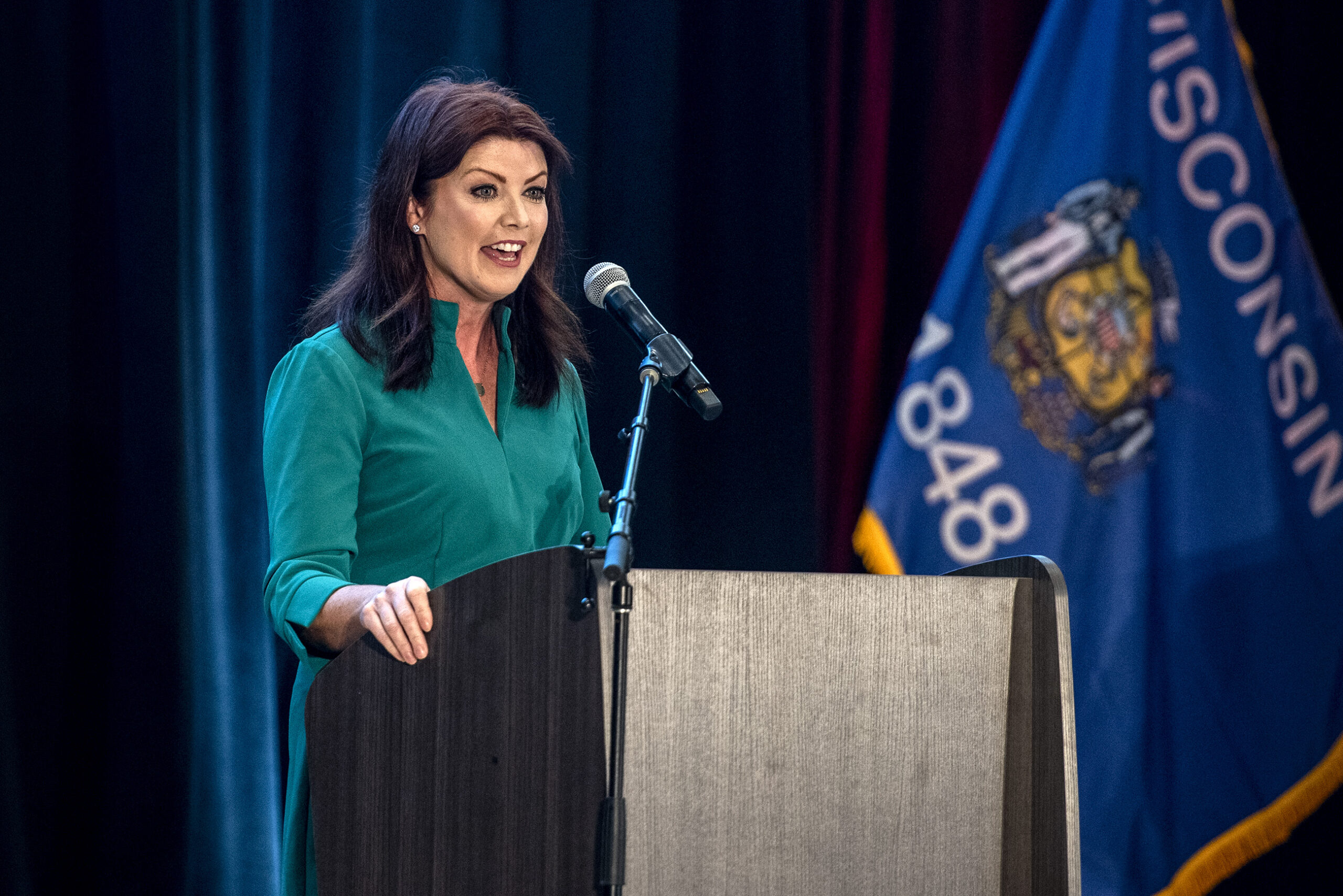
Kleefisch calls for flat tax
When the candidates were asked how they’d address inflation and rising gas prices, Kleefisch endorsed the elimination of Wisconsin’s progressive income tax in favor of a flat tax, a shift that would lower taxes for wealthy residents. She also said she favored the eventual elimination of the income tax.
“I will do massive tax reform,” Kleefisch said. “We will head toward a 3.54 percent flat tax — lowest tax that you have seen in your adult life. And I won’t stop there. We will also head toward zero percent — eliminating it.”
Ramthun blamed the growing size of government for inflation.
“I’m not rich,” Ramthun said. “I can relate to you. And you can relate to me. What’s going on in our country right now — in our state — hurts us all.”
Nicholson said he would eliminate Wisconsin’s Depression-era minimum markup law, which bans retailers from selling products like gasoline below cost.
“It would certainly help consumers in Wisconsin immediately with regard to gasoline,” Nicholson said.
The GOP primary for governor will be held on Aug. 9.
The most recent poll in the governor’s race, and the first taken since Michels entered the race in April, showed Michels in a virtual tie with Kleefisch among GOP voters.
Wisconsin Public Radio, © Copyright 2025, Board of Regents of the University of Wisconsin System and Wisconsin Educational Communications Board.
